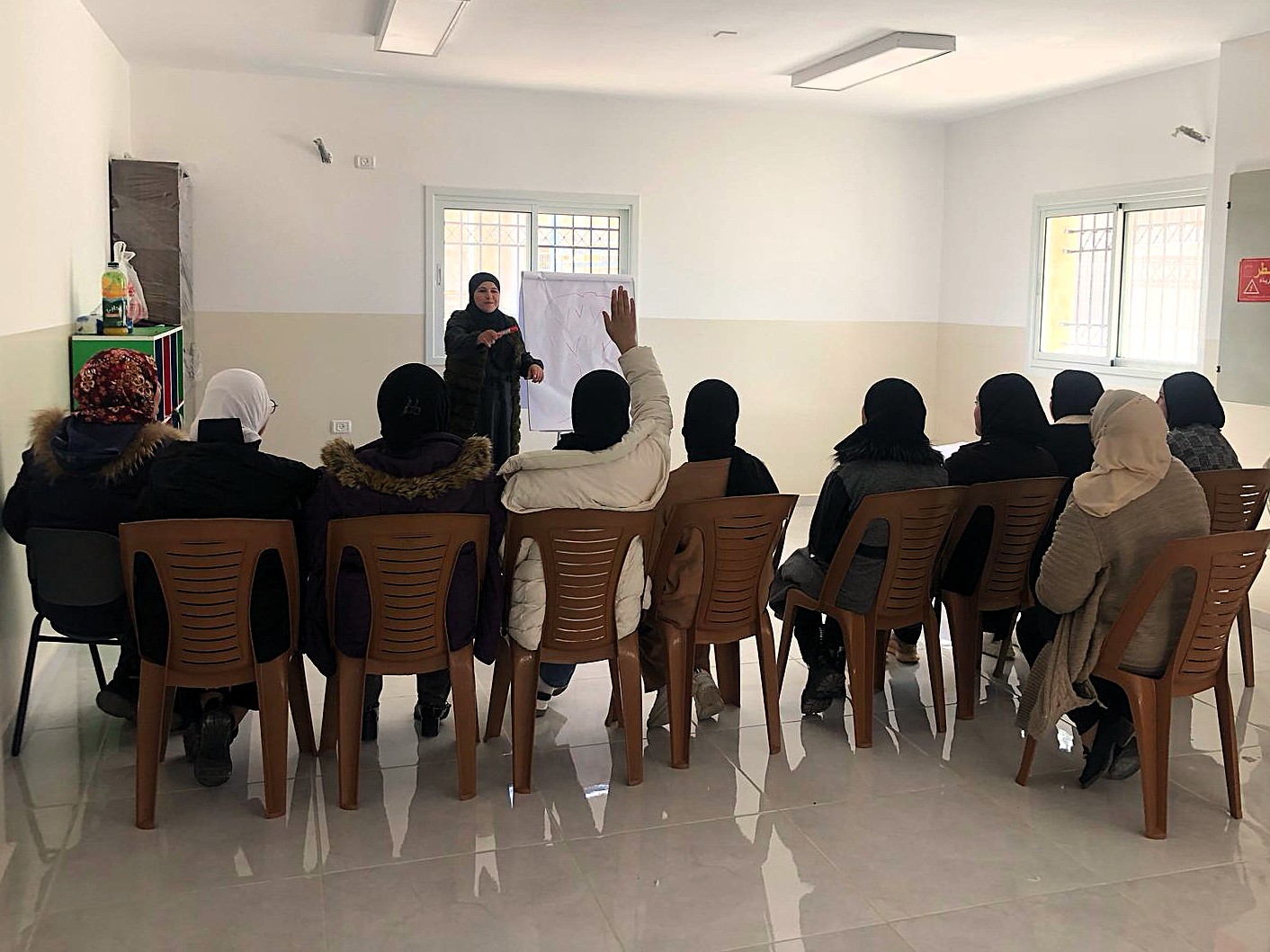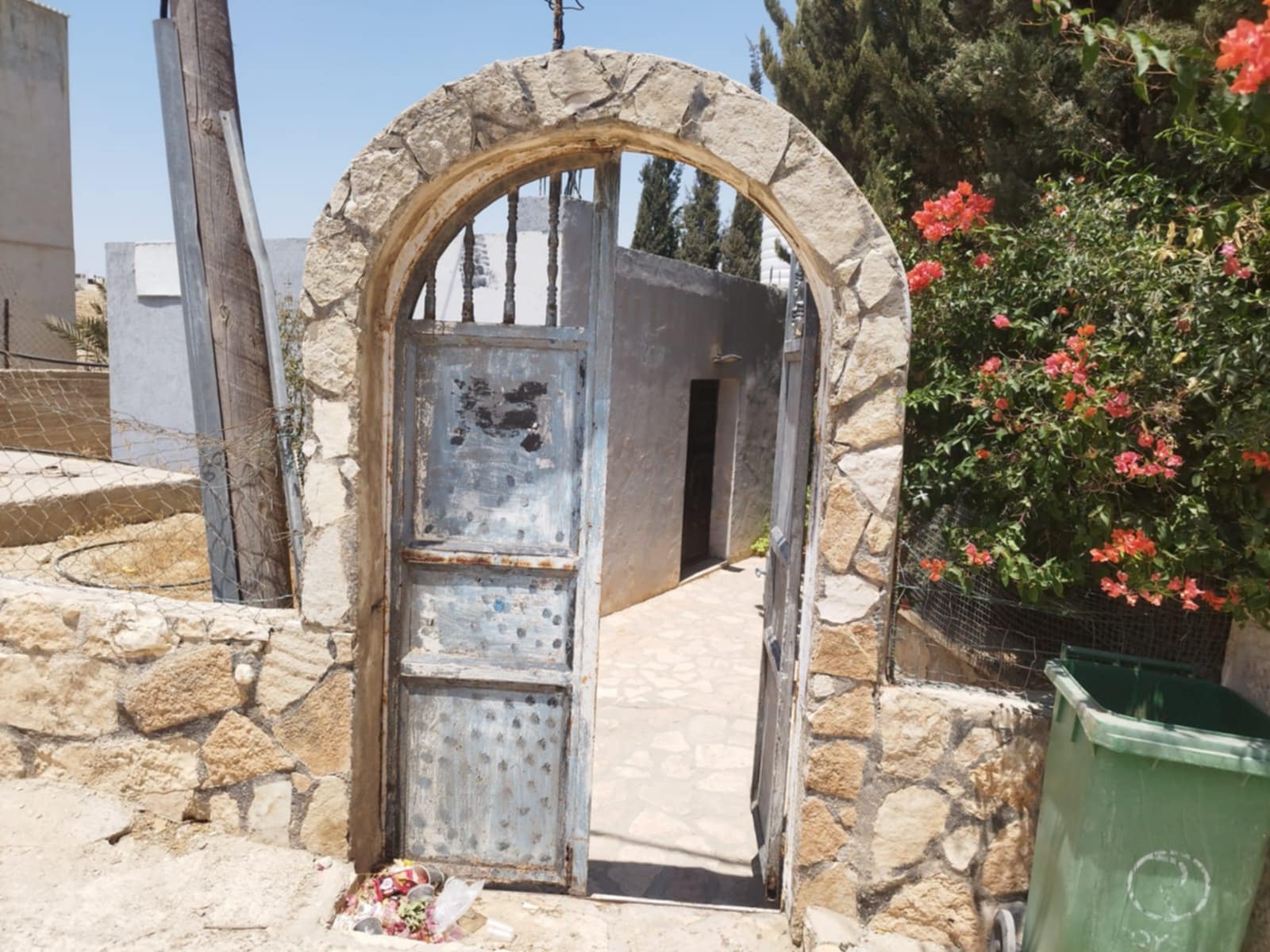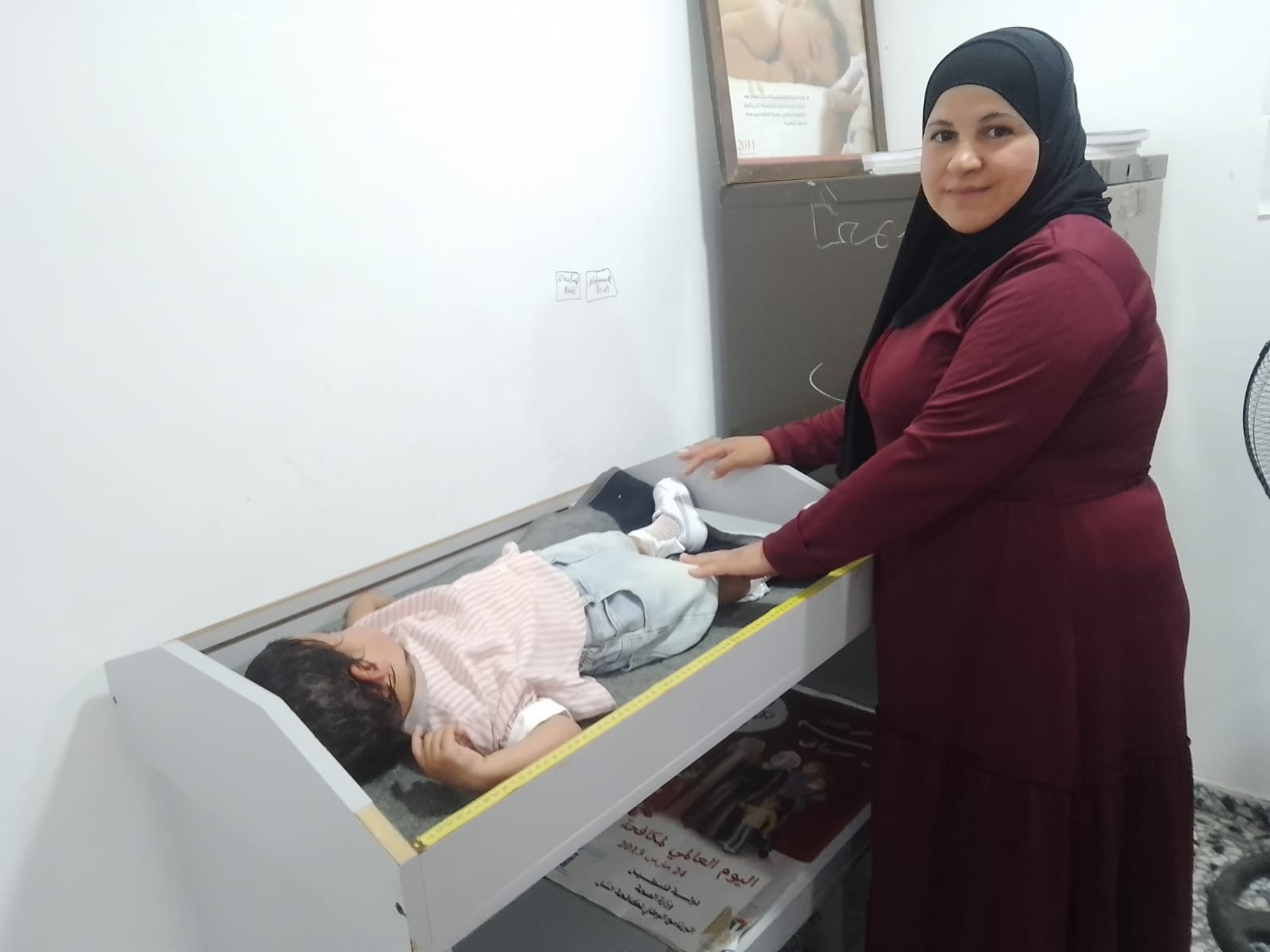Community Lifeline: How Asala and the Women of Umm Lasafa Stopped the Village Clinic’s Closure
Since October 2023, escalating violence, public funding crisis, and movement restrictions have severely disrupted healthcare access across the West Bank. In many villages, medical facilities operate under impossible conditions. Clinics open only a few days a week, often lacking medicine, staff, or even power. Over the past 20 months, these issues have cost lives. Against this backdrop, one small, overstretched clinic in Umm al-Safa, in the south of the West Bank became the focus of a grassroots movement to protect access to care.
At the center of that effort was Asala, a young Community Health Worker (CHW) from Yatta, who led a community-driven campaign to prevent the closure of the only functioning clinic in the village. “I knew right away the consequences would be catastrophic,” Asala said. “For a village like Umm Lasafa—with no reliable transportation, daily risks of violence, and nearly 3,000 people depending on that clinic—it wasn’t just a health issue. It was about survival.”
The decision to close the clinic came at the end of 2024, when the Ministry of Health announced plans to consolidate services. The clinic, already operating at reduced capacity due to unpaid salaries and staff shortages, was deemed no longer sustainable. The Ministry proposed merging its services with another facility far from the village.
Community leaders initially appealed to local authorities, but their efforts failed. “When I saw that the formal paths weren’t working,” Asala said, “I knew we had to mobilise in a different way. That’s when I turned to the women.” Asala, who had trained with World Vision’s health programme (Go Baby Go), knew how critical maternal and child health services were in underserved areas. “In Umm Lasafa, even basic prenatal care is rare. Many women have to go without,” she explained. “I had seen firsthand how even minimal services could make a big difference.”
She started organising women from the village—particularly mothers—and together they launched peaceful protests and sit-ins outside the clinic. “We held signs, we shared our stories, and we demanded our rights,” she said. “We weren’t just protesting—we were documenting how this clinic saves lives.” One of those women was Reham, a 24-year-old mother of three who had relied on the clinic for vaccinations and basic care for her daughters. “I was shocked and heartbroken when I heard about the closure,” she said. “It felt like we were being abandoned again.”

She joined the sit-ins without hesitation. “It was the least I could do,” she said. “We face so many barriers—unsafe roads, no public transport, the threat of violence. This clinic was the only place we could go without risking everything.”Reham described how even basic appointments were fraught with uncertainty. “Sometimes my children’s vaccinations were cancelled without notice,” she said. “And even reaching the clinic meant walking long distances with no guarantee of safety.”
With dozens of mothers backing her, Asala’s campaign only grew. She coordinated formal outreach to the Department of Health. She collected testimonies, drafted letters, and helped write a petition demanding the clinic remain open. “We focused on making our case with evidence,” she said. “We explained how the closure would disproportionately harm women, children, and the elderly.”

The pressure worked. In early 2025, the Ministry of Health reversed its decision and suspended the closure. For Ahlam, Director of the Nursing Department at the Department of Health in Hebron, it was clear Asala had performed a miracle. “Asala has demonstrated extraordinary leadership and resilience,” he said. “Her efforts in mobilising the community and applying consistent, organised pressure were instrumental in the decision to keep the clinic open.”
The result, according to Asala, was not just a policy change—it was a shift in mindset. “From the beginning, I believed we could stop this,” she said. “Because we had no other choice. Our voices were stronger than any bureaucratic decision.” The clinic remains open today. While it still struggles with staff shortages and intermittent service disruptions, it continues to serve the village—particularly mothers, children, and elderly residents who have no safe way to reach other healthcare facilities.

“The entire village depends on it,” Asala emphasised. “Every child born here, every elder in need of care, every pregnant woman—they all come here. Without it, many simply would go without care.” Reham agrees. “The clinic still lacks many things,” she said, “but at least it’s here. And that’s because Asala didn’t give up.”
For communities like Umm Lasafa, where infrastructure is minimal and daily life is marked by instability, healthcare is not a given—it must be defended. Asala’s story is a reminder that even in the harshest conditions, organised local action can protect essential services. “When you’re part of a forgotten place,” Asala said, “you learn to fight for every basic right.”